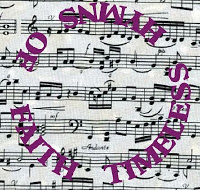It is so hard to believe that another year is passing. I think that the older one gets the faster time seems to fly. The year 2017 might be one of those years you'd like to forget. It has been filled with political intrigue, racial problems, terrorism, tornadoes, floods, earthquakes, and forrest fires, in addition to a multitude of personal challenges that we each have faced. Will 2018 be any different? Probably not, unless the Lord comes. His return would make it the most memorable year in history and I pray daily for that to happen. But no matter what does come our way, we do have the firm assurance that God will not forsake His children. His eyes are upon us. He sees all that we do. His arms are around us and they keep us safe and secure. He knows where we are every hour of every day. He even knows each of our thoughts. And our loving Father provides joy with peace and life for His children. But even though we are human and at times stray from His will, we are never out of His care. These comforting truths are shared in this week's song choice. And I am sharing them with you this week to encourage each of us as we start another year. I know I need this encouragement and I am guessing that many of you do as well. When we keep our eyes and thoughts on the problems of this world we can quickly become very discouraged and even depressed. But we are just pilgrims here on this earth, just passing through. Our real eternal home is just ahead and Jesus will lead us there. If you have never accepted His free gift of salvation, why not start the new year with new life by accepting His free gift of forgiveness. Then you, too, will have this blessed hope for the future. Now I have had a very difficult time gathering any information about the writing of this song. I have found numerous websites and sheet music which give credit for the writing to Dallas Holm, Phil Johnson, Mark Lowry and Amber Balltzglier or even a Michael Booth. I know several of these have recorded it, but I don't know who is the actual author. If you can clarify that for us, please leave a comment. But no matter who penned the words, this would be a great song for each of us to carry with us into 2018. Meditate upon the words and claim their truth during the coming year.
1. The eyes of God are upon me,
He sees everything I do.
The arms of God are around me,
They keep me safe and secure.
And He knows where I am
Every hour of every day
He knows each thought I think
He knows each word that I might say.
And although there were times
I've stepped out of His will
I've never been out of His care.
2. This changing world alarms me,
With war, with sin, with strife.
But my loving Father charms me,
With joy, with peace, and with life.
And He knows where I am
Every hour of every day
He knows each though I think
He knows each word that I might say.
And although there were times
I've stepped out of His will
I've never been out of His care.
I've never been out of His care.
Listen to it here. LISTEN























